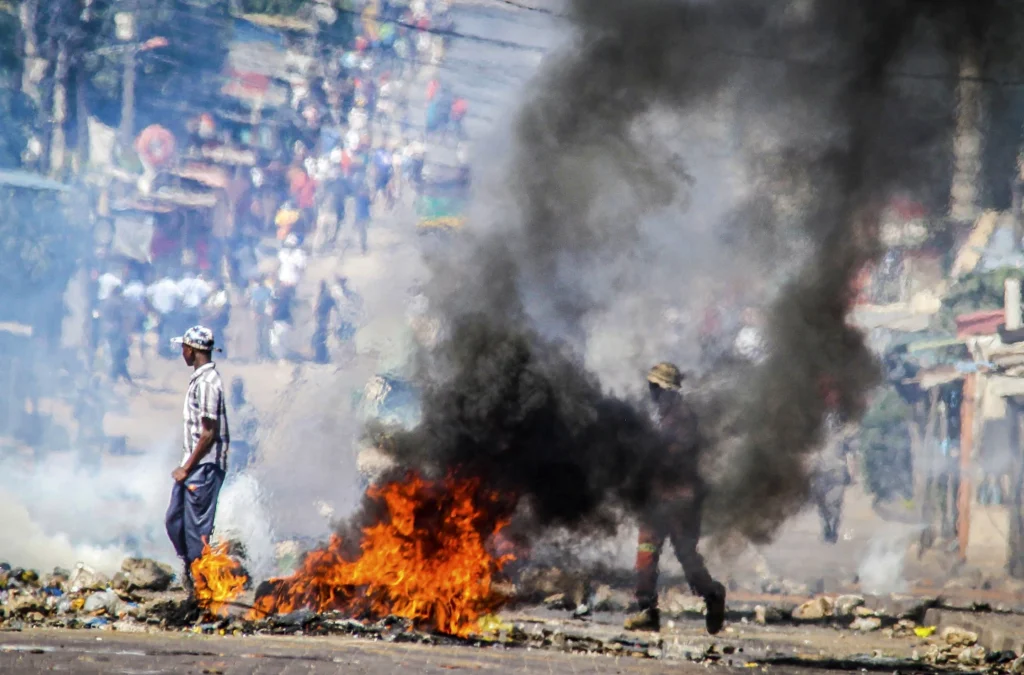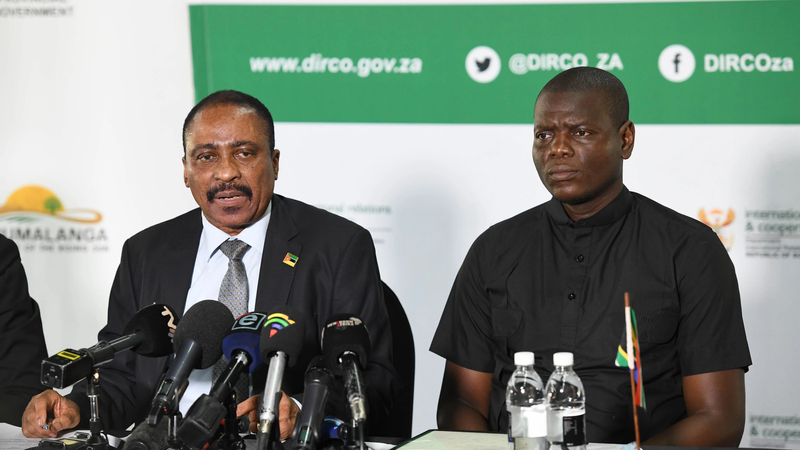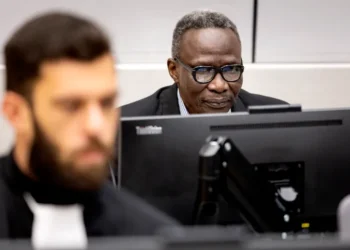The ministers of South Africa and Mozambique met on Wednesday to address escalating disruptions at key border points, including the Lebombo and Ressano Garcia ports of entry.
South Africa’s Minister of International and Cooperation, Ronald Lamola, and Mozambique’s Minister of Interior, Pascoal Ronda, convened in Malelane, Mpumalanga, to tackle the economic fallout from post-election unrest in Mozambique.
Mozambique has been gripped by violent protests since the disputed October 9 general election. Widespread allegations of electoral fraud have sparked turmoil, leading to at least 50 deaths and significant damage to infrastructure.
Urban centers like Maputo have been particularly hard-hit, with over 151 businesses vandalized, resulting in losses of $45.5 million and jeopardizing more than 1,200 jobs.
In response, the ministers pledged to bolster cooperation to minimize trade disruptions and protect economic stability in both nations.
The bilateral meeting identified measures to address the challenges, emphasizing the need for continuous engagement to ease disruptions. A joint statement revealed that both countries have committed to deploying additional resources, identifying alternative routes, and working with stakeholders to safeguard trade and supply chains.
“The Ministers agreed that both countries will endeavor to protect and secure the infrastructure for trade facilitation and continued collaboration to ensure minimum disruption for regional integration, including associated cross-border value chains,” read the official statement.
The unrest has disrupted the free movement of goods and people, severely impacting the economies of Mozambique and South Africa. Officials warned that prolonged instability could lead to food and energy insecurity, as companies face mounting losses from halted trade operations.
Lamola’s department commended efforts by senior officials and agencies from both sides, acknowledging progress in mitigating the negative effects of the disruptions so far.

Severe Economic Fallout
Mozambique’s ongoing violence has dealt a heavy blow to its economy, with the Confederation of Mozambican Business Associations (CTA) reporting staggering losses of 24.8 billion meticais (around $388 million). The unrest has led to a 2% drop in GDP and severely impacted critical sectors, including tourism and logistics.
Foreign direct investment, which accounted for 12.6% of Mozambique’s GDP in 2020, is also at risk of decline due to the instability. Analysts warn that these disruptions could worsen inflation, increase unemployment, and deter future investments essential for Mozambique’s recovery.
Despite the challenges, South Africa’s Border Management Authority (BMA) has reported smooth operations at the Lebombo port of entry. The agency confirmed that cargo and traveler movements continue without significant delays, reflecting preparedness for the busy holiday season.
“The processing of cargo on both arrival and departure continues as normal, with efficient facilitation ensuring seamless movement of goods,” the BMA stated.
Traveler movements at the border are also reportedly flowing smoothly, providing some relief amid the wider disruptions.
The ministers concluded their meeting by emphasizing the urgency of restoring stability in Mozambique and protecting the economic ties that bind the two countries. While short-term measures may alleviate immediate pressures, sustained peace and effective governance are essential for long-term recovery.
As such, while the violence continues to hinder progress, regional leaders and stakeholders are urged to collaborate to prevent further destabilization and ensure that trade, the lifeline for many businesses, remains uninterrupted.
READ ALSO: Avedzi Discusses Role, Impact of Newly Established ORAL Committee





















